Twenty-six years after the official end of the Cold War with the now historic handshake between George H.W. Bush and Mikhail Gorbachev in Malta in 1989, the East-West dilemma could not be more alive in the Western Balkans. To many ex-Yugoslavs in each of the seven successor republics, this seems like a 30-year leap back in the past. The only difference is that these people were then deeply envied by the rest of the world for getting to address what was elsewhere a central identity issue in a pretty casual manner. A founding member of the Non-Alliance Movement, Tito’s Yugoslavia gravitated between the two poles of power throughout its entire existence without ever allowing its relationship with either the US or the Soviet Union to define its status as a country. A quarter of a century later, two of Yugoslavia’s successor states seem to be right in the middle of the revived tension between the United States and Russia, and they are just as reluctant to take sides as their glorious predecessor. This time, however, the governments of Macedonia and Serbia will eventually have to come to terms with the fact that neutrality is no longer an option.
The entire foreign policy of the Republic of Macedonia since independence in 1991 can be summarized in the following line from the anthological movie Happy New Year ’49: “The East has written us off, the West won’t write us in”. The previous leadership of the incumbent ruling VMRO-DPMNE tried very hard to portray Macedonia’s relationship with the West and the East as a zero-sum game in the late 90s. Within its broader policy of distancing the country from its immediate Communist past, the then government insisted that European integration should be Macedonia’s one and only strategic priority, thus making deteriorating relations with Russia look like acceptable collateral damage in the long run.
However, the rhetoric of DPMNE’s current leadership on this issue is very different, and its actions can even be seen as diametrically opposed. While EU membership remains Macedonia’s main foreign policy goal, its relationships with Russia, Turkey, and China are publicly being referred to by the government as ‘business as usual’, which is meant to illustrate bravery on its part for daring to “hang out with the bad guys”. Most foreign investments in Macedonia today can be traced back to either Beijing or Ankara, with the country’s only functional airport having been sold to a Turkish company, and highways nationwide being reconstructed with Chinese funds.
As much as this is indeed a bold foreign policy in times of renewed Cold War tension, it is not what Prime Minister Gruevski pledged to do when he came to power. After appointing a few German-educated ministers to his government, Gruevski made a personal commitment to improving relations with Germany upon his inauguration in 2006. However, the heads of the two countries have not held a single bilateral meeting for the past nine years. In fact, Chancellor Angela Merkel was given a harsh scolding for what appeared to be her genuine offer to help with the name issue last summer. Her definition of compromise as ‘a situation in which each party loses something’ was strongly condemned by pro-government journalists, who were sickened by the very idea of making concessions in the negotiations for something that they regard as non-negotiable in the first place.
As the government failed to provide an official response to Merkel’s statement, Macedonia lost a unique opportunity to work with one of the leading world leaders on overcoming its key EU-integration obstacle. Understandably, the German Chancellor has been quiet ever since, and the whole incident made Gruevski’s repeated assurances of unconditional commitment to friendship with the West sound like empty words. In fact, Macedonia’s recent behavior with regards to the East-West dilemma has been described as one of a ‘drunken driver who switches the left blinker on, but nevertheless turns right’. That said, nothing is likely to ever have damaged Macedonia’s relations with the West more than government rhetoric during the ongoing wiretapping scandal. The Prime Minister has, rather vaguely, blamed it on unspecified foreign intelligence services. Pro-government journalists, however, have unambiguously identified the US as the foreign power to blame, thus probably downgrading American-Macedonian relations to their all-time low.
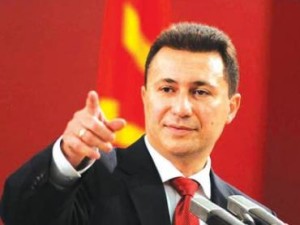
Despite the similarity between the two countries in this regard today, Serbia’s history with the East-West dilemma differs substantially, and it goes back to pre-Yugoslav times. Indeed, Serbia and Russia have done many irrational things over the course of history in the name of their strong historical bond commonly referred to as panslavism, not least the sparking of World War I. Furthermore, when religion regained its role in Serbia with the collapse of Communist Yugoslavia, panslavism was complemented by the Orthodox branch of Christianity. It is because of this multilayered sense of brotherhood with Russia that many Serbians are still unable to digest Moscow’s failure to prevent the bombing of Belgrade in 1999. Russia may have vetoed the relevant UN resolution in the Security Council, but its later inability to stop the unilateral NATO mission from happening was perceived by the proud Serbian people as nothing but betrayal. It was this sensation of utter abandonment that prompted Serbian politicians in the post-Milosevic era to start pursuing a pragmatic foreign policy, and European integration was deemed to be the only policy course that could benefit Serbia.
While this approach was relatively well-received by the population, it also established the “hearts VS minds” distinction, which is very much present throughout the country to this date. Government EU-integration efforts are supported, but this support is only ever justified on economic grounds, with Russia still being regarded as the sole logical ideological ally. This binary had no tangible impact on the political reality until the European Union introduced sanctions against Moscow due to its annexation of Crimea in March 2014, and asked its candidate members to follow suit. Prime Minister Vucic’s straightforward refusal to join the sanctions did not surprise anyone in the region, but it did agitate the EU, which was convinced that Serbia had permanently dropped the East-West dilemma the minute it was granted EU candidate status. The unprecedentedly warm welcome which Putin received at a WWII liberation parade in Belgrade at the peak of US-Russian tension last November demonstrated that Brussels could not have been further from the truth.
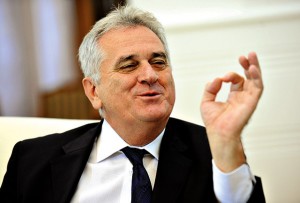
At this point, it might be useful to look at Russia’s recent behavior towards the two countries. Ever since Crimea, the West has repeatedly pointed to Moscow’s endeavors to create a new sphere of influence modeled on the Eastern Bloc during the Cold War, thus accusing it of violating the nowadays inalienable right to self-determination. The proponents of this view argue that Russia has taken two and a half decades to recover from the collapse of the USSR by reluctantly pursuing a cooperative foreign policy, only to return to its inherent Cold-War-era aggressiveness now that it is back on its feet. As much as there may be evidence for this claim in the Baltic states and Ukraine, applying this characterization to Russia’s foreign policy in the Balkans would be profoundly incorrect. In fact, it is interesting to note Vladimir Putin’s attitude during the November parade, which had been anticipated by both the Serbian government and local media as “the event of the decade”. The Russian President appeared motionless and indifferent to the numerous fond references to panslavism in the emotional speech of Serbian President Tomislav Nikolic, who even unsuccessfully attempted to address his Russian counterpart in his native tongue. What really angered the Serbian public, however, was Putin’s abrupt departure in the late afternoon to reunite with his old-time friend, Italian ex-Prime Minister Silvio Berlusconi, for a private dinner in Milan only a few hours later.
According to many regional analysts, Putin’s behavior that day was meant to send a clear signal to Belgrade that Russia was neither willing nor able to provide Serbia with an alternative to its slow and ultimately uncertain EU-integration process (the final section of the negotiations, Chapter 24, may well include the unconditional recognition of Kosovo whose refusal would block Serbia’s accession even if all other criteria were met in the meantime). And it is exactly Kosovo that somewhat ironically indicates the absurdity of the commitment of Vucic’s government to panslavism – trade exchange between Serbia and Russia is at the moment even lower than that between Belgrade and Prishtina! After all, it is not Serbia, but rather Bulgaria, that has always been Moscow’s favorite in the Balkans, as captured by the famous Soviet-time saying: Курица не птица, Болгария не заграница (“A chicken isn’t a bird like Bulgaria isn’t Russia”).
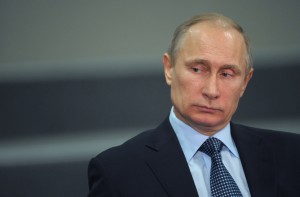
This notion of “unrequited love” is equally applicable to Russia and Macedonia. Bilateral economic cooperation is burdened by the Yugoslav-era Quisling debt, which Russia has repeatedly refused to write off despite Macedonia’s numerous pleas to this effect. As far as political collaboration goes, there has never been a top-level bilateral meeting between the two countries, or a state visit to Skopje by a high Russian official. Contrary to these facts, US Secretary of State John Kerry has recently included Macedonia in his “line of fire” that Russia allegedly uses as a bargaining chip with the West. This statement has contributed a great deal to Macedonians’ sense of self-importance, since it was interpreted by pro-government journalists as an indication of the rightfulness of the country’s inviting attitude towards Moscow. They argue that the closer Macedonia gets to Russia, the more bargaining power it will have in the eventual EU-accession negotiations. Another move in this direction is President Gjorgje Ivanov’s confirmed presence at the traditional WWII victory parade in Moscow on May 9, where he will unsurprisingly be accompanied by his Serbian counterpart, but not by any EU head of state other than the Eurosceptic presidents of Greece, Hungary, and the Czech Republic.
A fundamentally new moment in the relations between the two countries was last week’s official reaction by the Russian Foreign Ministry with regards to the still unresolved attack on a local police station near the multi-ethnic city of Kumanovo. Pro-government media hurried to celebrate Moscow’s declaration of its full confidence in the ability of the government to get to the bottom of this incident. This was in fact just a follow-up on another recent press release by the Russian MFA in which the Kremlin unambiguously took Gruevski’s side in the wiretapping scandal. What these journalists failed to mention was that these two were the only official Russian government announcements on Macedonia throughout the latter’s 24 years of existence, which have, among the rest, included an interethnic conflict in 2001 that Russia wittingly chose to ignore. The timing of this suddenly awoken Russian interest in Macedonia is hardly a coincidence, and the government might want to ask itself if any alliance based on a temporary interest is worth pursuing. Obviously, nothing would keep Russia from returning to its pre-Crimea ambivalence to Macedonia as soon as US-Russian tension winds down.
On balance, this article does not mean to suggest that Macedonia and Serbia, or any other West Balkan country for that matter, should blindly walk on the path towards the EU without constantly rethinking the rightfulness of every single action that is undertaken in the process. It would be great, for instance, if the Macedonian people started viewing the resolution of the name issue as a matter of vital national interest, rather than as a mere accession condition imposed by the EU. At the end of the day, no country could ever benefit from having different names for domestic and foreign use, regardless of its position on the East-West dilemma. However, when this rethinking leads to the coinage of unsubstantiated conspiracy theories such as the one on US involvement in the wiretapping scandal, it can be nothing but detrimental. Macedonia and Serbia need to bear in mind that, this time, they do not have the Non-Alliance Movement to hide behind. Yugoslavia is long gone, and they will have to address the East-West dilemma by themselves and for themselves, as every other sovereign nation on this planet does. And if Gruevski and Vucic are too afraid to turn their backs on Russia, they should remember that even Tito said NO to Stalin in 1948.

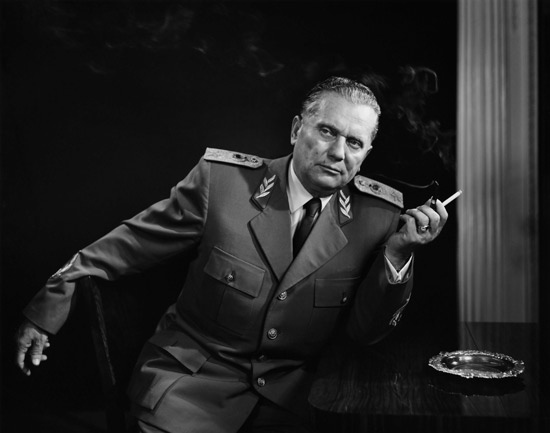
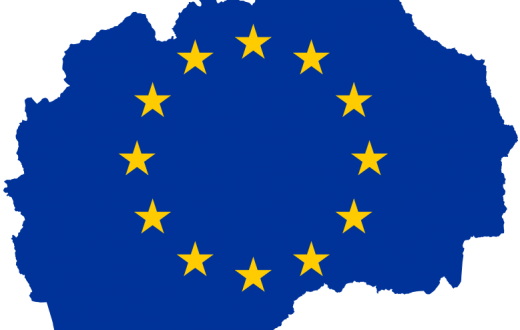
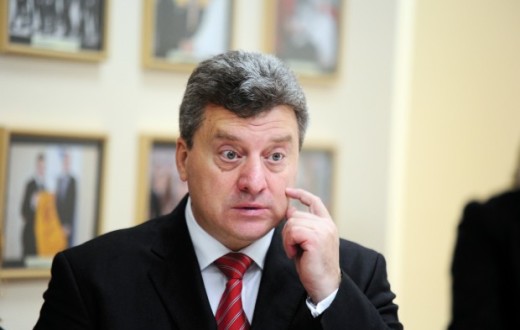
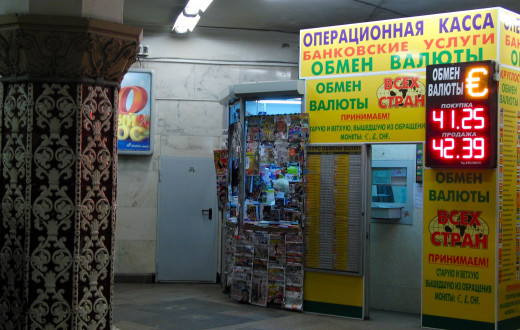
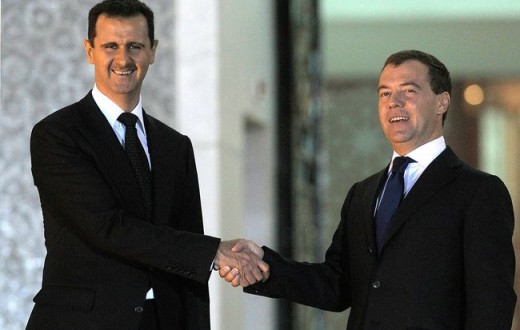
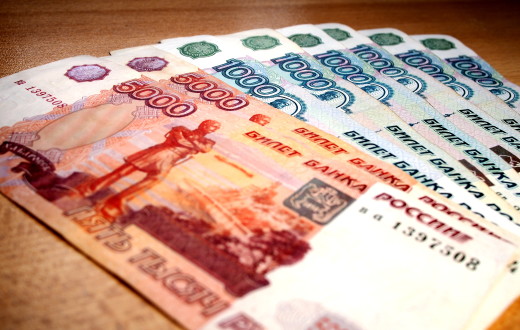
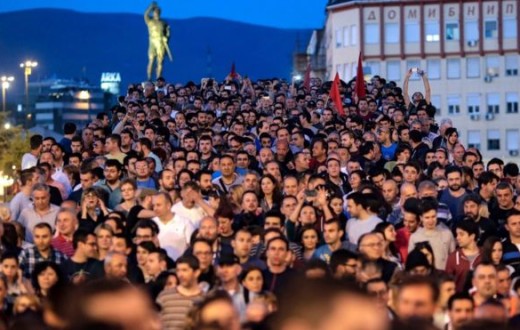
Pingback: April Elections Will Determine Macedonia’s Future for Years to Come – The Vostokian